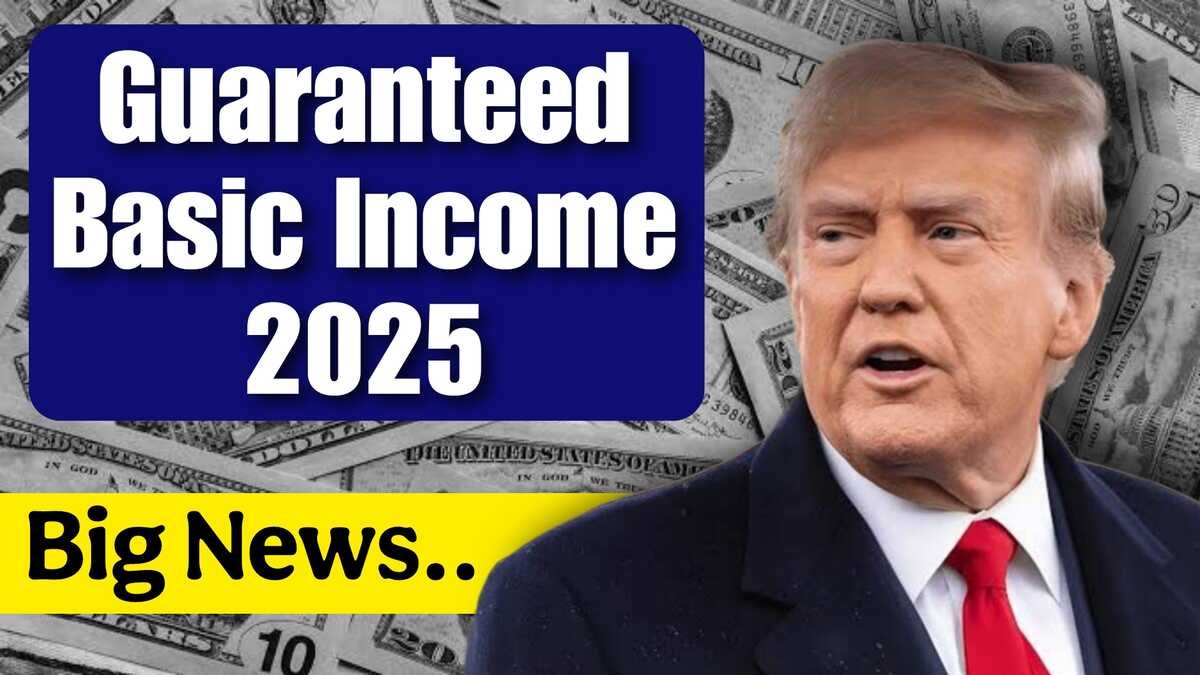Universal Basic Income 2025 : The debate on Guaranteed Basic Income (GBI) has gained much attention in recent days, and both its possible application and its economy and social implications have become contentious topics. GBI is a policy about providing regular payments by the Governments to citizens on an unconditional basis; this is proposed to reduce poverty and economic inequality. As refreshing as it sounds, critics argue that the unintended consequences it might produce could outweigh the positive effects. Let us now examine some reasons why such a policy might work against the proposals made in its favor, as per researchers:
What Is A Guaranteed Basic Income?
A Guaranteed Basic Income is a universal cash transfer provided to all eligible citizen residing in a country on a regular basis, irrespective of whether they are employed. The purpose of GBI is to provide the citizenry with the livelihoods necessary to lead a basic standard of life. The advocates insist that it can manage unemployment, lessen poverty, and assure economic stability in times of crises due to pandemics or automation-induced job loss.
In fact, more negative impacts were highlighted by recent efforts and expert opinions.
The Economic Concerns Surrounding GBI
01. The Expense And Feasibility
- A single major issue hanging around the GBI policy is the financial burden it puts on governments. It is quite an expensive program since huge funds would be required for implementing the unconditional income program, thereby in a further strain on the national budget. It is argued that it would cause an increase in taxes, inflation, or cut in very important social services like health and education.
- Thus; were the GBI program meant to cost in billions of dollars annually, the government would have to stem out spending in other actions where infrastructures, defense, and other needy social areas are left without allocation.
02. Effects On Workforce Participation
- One more major issue of concern is the imminent reduction in labor participation. There is an opinion in the air that the provision of unconditional payments can stop people from taking up jobs, particularly low-wage ones.
- When the number of workers decreases, a labor shortage will have occurred, increasing productivity rates, and slowing down economic growth. Businesses will find a harder time locating workers, and a shrinking tax base will make GBI even harder to sustain.
Social Implications Of GBI
- Dependence Culture: Critics worry that GBI might cultivate a culture of dependence where people count on government handouts as opposed to striving to improve upon themselves-in terms of accessing higher education and skills development. This could only go so far in furthering a sense of divide among those that are ambitious, on the one hand, and those leading a humdrum existence, seeking mere basic subsistence, on the other hand.
- Disparities As GBI Preference: The GBI targets at reduction of inequalities; however, the issue of one size fits all needs to be factored into the conversation. This may not be adequate enough to bridge gaps among regions and differences among individuals. For example, vast differences in living costs exist between urban and rural areas; this means that an amount that could be appreciable for one group of individuals would be meager for another.
- Diminution In Public Services: Introduction of GBI can cause suffering in losses in other social programs. Other essential services like low-cost housing, job training schemes, or mental health support could be curtailed and disbanded, leaving vulnerable populations without targeted assistance.
Types Of Alternatives To Poverty And Inequality
Instead of GBI, experts offer the potential for programs that will target actual specific problems like housing, education, and healthcare. By being less problematic, they might well be better equipped to assist persons who are less well-off without creating a host of economic and social problems that have been associated with GBI.
Instead of working towards setting up a culture of dependence through reliance on government aid, they resolve to promote free job and subsidy-for-reskilling schemes and affordable nursery schools that would enable individuals to live without being a burden to the taxpayers.
Also Read: Get Your $2,000 4th Stimulus Check in 2025 – Eligibility and Payment Timeline Explained
